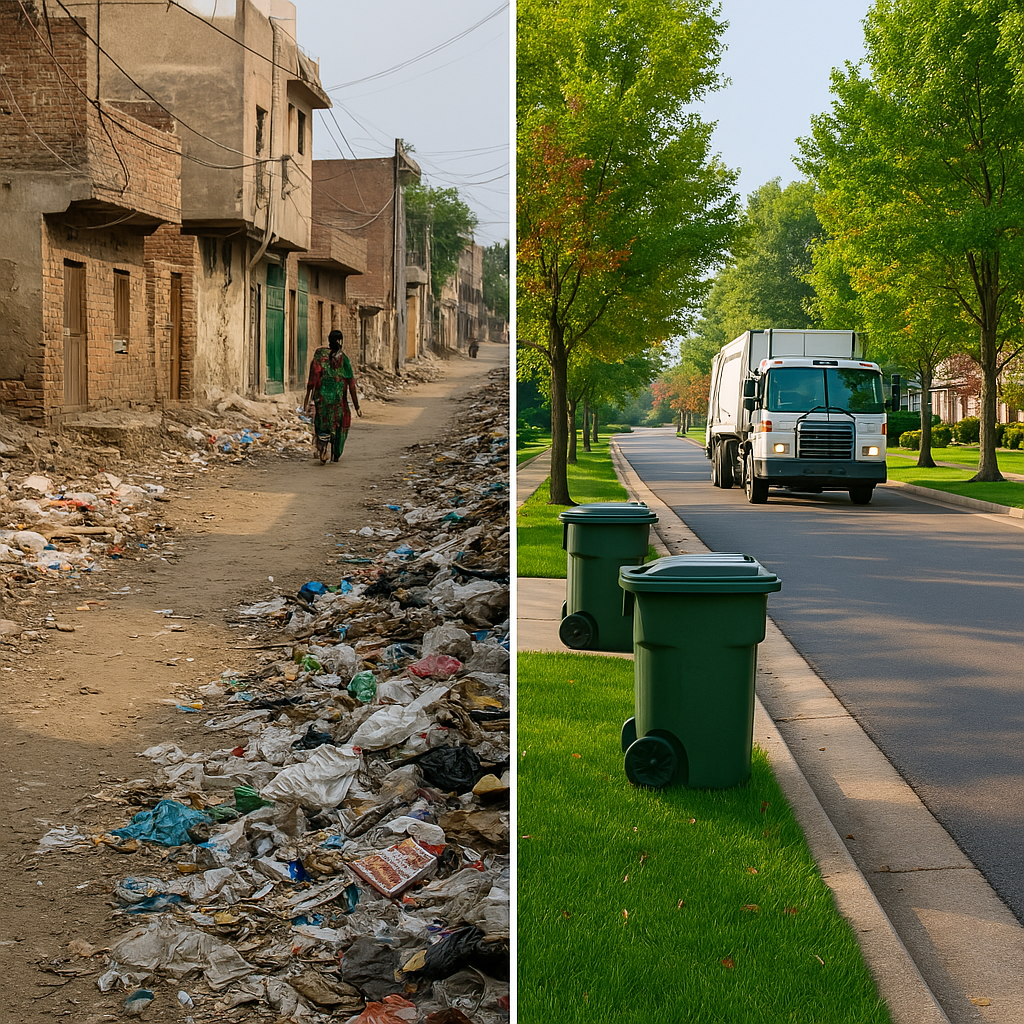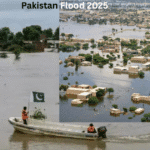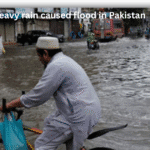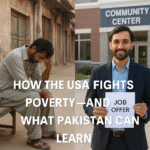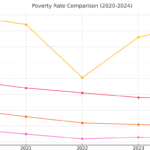By an Overseas Pakistani | www.overseaeyes.com
Note: Clean streets aren’t a luxury — they’re a basic need. In this blog, an overseas Pakistani reflects on the stark difference in waste management between Pakistan and North America. Through personal stories and practical ideas, this post explores how even small steps can lead to a cleaner, healthier Pakistan…
When I First Moved Abroad
When I first moved to Canada, everything felt new — wide roads, modern buildings, polite people. But what really surprised me was how clean everything was. The roads were spotless, no garbage on the sides, no bad smell in the air. It was the same story when I came to the USA. Everywhere I looked — clean neighborhoods, organized streets, and regular garbage trucks collecting waste on time.
It made me wonder:
“If they can do it, why can’t we?”

My Personal Experience in Pakistan
I still remember 2013 or 2014 when we entered Islamabad, the capital of Pakistan. Right at the entrance of the city or when leaving the city, a terrible smell hit us . The source? Garbage was being dumped in the open, right along the roadside. Not in proper containers. Not in covered bins. Just thrown out in the open.
And Islamabad isn’t alone. I’ve seen the same problem in Karachi, Lahore, and Peshawar — piles of trash at street corners, drains clogged with plastic bags, and open dumping grounds in residential areas. It’s like garbage has become part of the scenery.
Municipal workers are either missing or barely doing their job. And in monsoon season, the problem gets worse — rains flood the streets, and suddenly every blocked drain and trash pile starts floating around.
What Happens in America (And Why It Works)
When I came to the USA, I saw how differently things were handled:
- Every home has proper garbage bins — one for trash, one for recyclables, and sometimes one for yard waste.
- Large covered garbage trucks collect waste regularly, following a strict weekly schedule.
- Trash is not dumped randomly; it’s sent to a proper facility for processing.
- Medical and hazardous waste is handled separately, not mixed with household garbage.
- And if you throw garbage on the road? You’re fined. No excuses.
Here, cleanliness isn’t just a civic service — it’s a culture. People take it seriously because they know it affects health, safety, and the environment.
🌮 Canada’s Clever Answer: Turning Rubbish into Fuel
While I was in Canada, I heard about a pilot plant in one of the cities that they called a Biofuel Refinery — and it completely changed my idea of trash.
This project took non-recyclable solid waste (yes, ordinary trash) and converted it into clean fuels and renewable chemicals through a thermochemical process. This was not recycling. This was creating value from waste — taking trash and turning it into something of value.
Rather than contaminating the environment, the trash was fueling homes, industries, and vehicles.
Think about it:
While we let garbage rot in our streets in Pakistan, other countries are transforming it into gold.
Garbage Is Not Just Ugly – It’s Dangerous
In Pakistan, we often ignore garbage because “everyone does it.” But garbage is more than just an eyesore. It’s a serious health hazard.
- It spreads diseases like dengue, typhoid, malaria, and stomach infections.
- It blocks drains and causes urban flooding every monsoon.
- It creates pollution, both air and water.
- It drives away tourism and investment.
Meanwhile, in America and Canada, the streets are clean, and the environment is protected. That’s why people here generally live healthier and longer lives.
💡 So, What Can Pakistan Do?
Let’s be honest — we don’t need to invent something new. We just need to learn from what’s already working in countries like the USA and Canada. The problem is real, but the solutions are actually quite simple.
Now, some people will say,
“Yaar, Pakistan is different. Our streets are narrow. Big trucks can’t even enter.”
And they’re right! In many older cities and neighborhoods, lanes are too small, and even small vehicles can’t get through easily.
But there’s a smart solution:
- 👉 Place shared garbage bins outside every 8 to 10 homes
- 👉 Build one designated garbage spot at the end of each street
- 👉 From there, municipal trucks can pick it up easily
Even this one change can reduce trash on the roads, control smell, and stop people from dumping waste anywhere they like.
But here’s the catch — for any system to work, someone has to be responsible.
In the USA and Canada, it’s usually the local government or the mayor who handles all this. They’re the ones who plan, monitor, and make sure services run on time. If something goes wrong, citizens know exactly who to contact — and action is taken.
In Pakistan, unfortunately, local body elections rarely happen, and when they do, nobody holds those elected people accountable. There’s no follow-up, no proper system, and no one to check if the garbage is actually being collected or not.
Still, as a Pakistani who has lived abroad, I feel it’s my responsibility to speak up. I’ve seen these systems work. I know change is possible.
So I’m doing my part — sharing ideas, raising awareness, and hoping that someone somewhere picks this up and makes it real.
Because when people care, when someone takes ownership, even a narrow street can become clean.
Pakistan doesn’t need miracles — just responsibility, planning, and will.
Final Thoughts from a Pakistani Abroad
I’m not writing this to criticize my country. I’m writing it because I love my country.
I’ve seen what works in other parts of the world — and I truly believe Pakistan can do the same. We have the people. We have the talent. We just need planning, willpower, and honest leadership.
The day we stop saying “Yeh Pakistan hai, yahan kuch nahi ho sakta,” and start saying, “Main Pakistan hoon, aur main kuch kar sakta hoon” — that’s the day change begins.
Because if America and Canada can stay clean — so can we.
